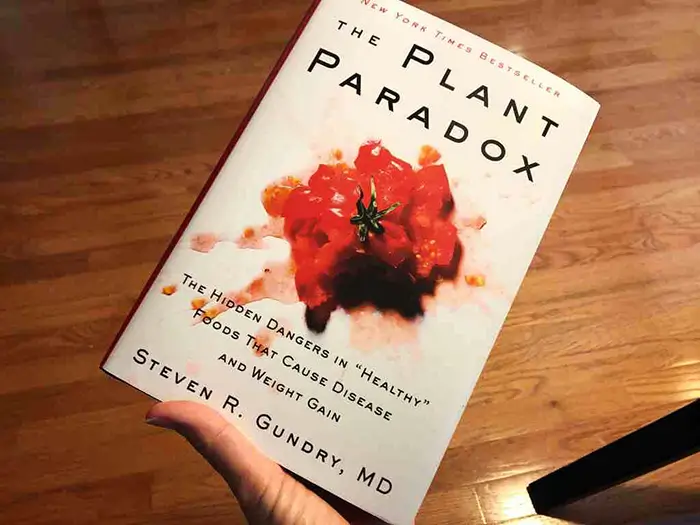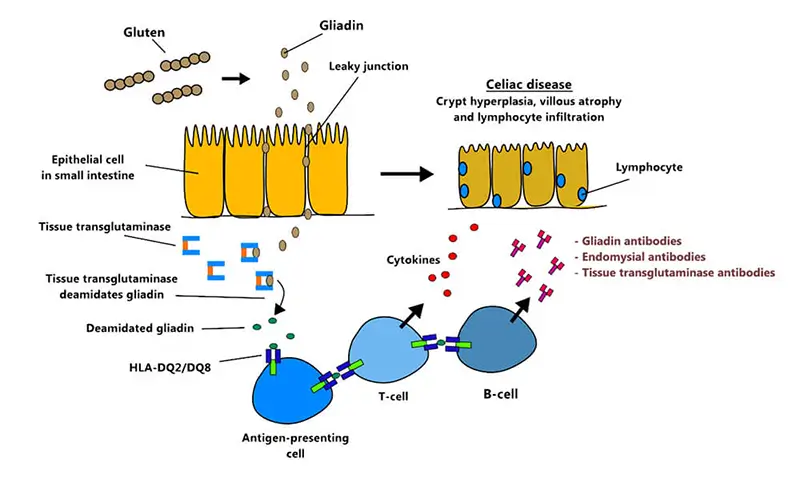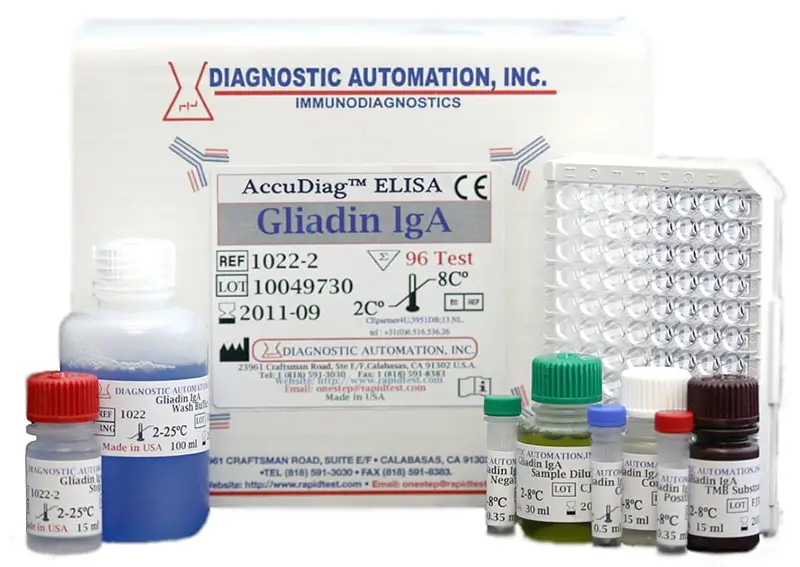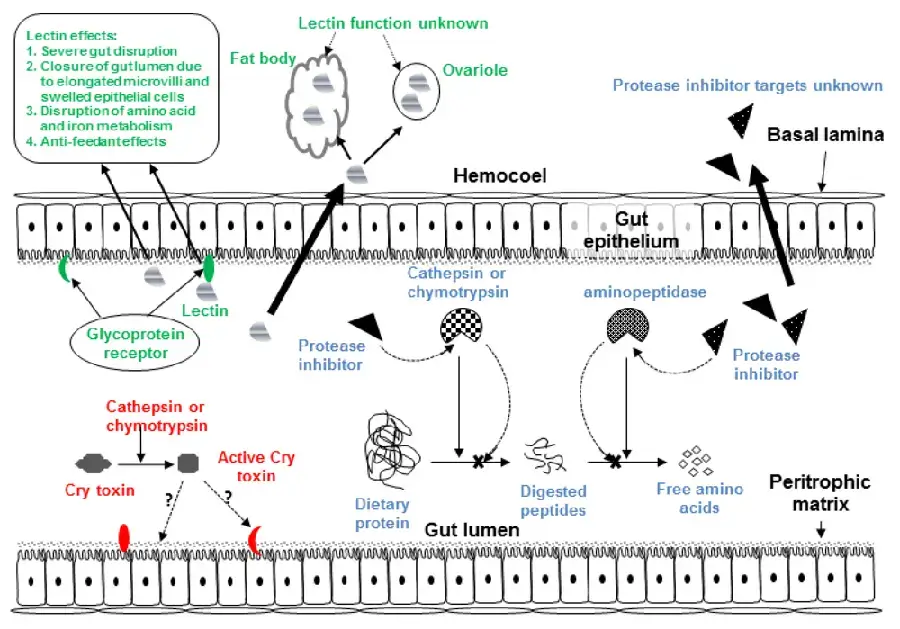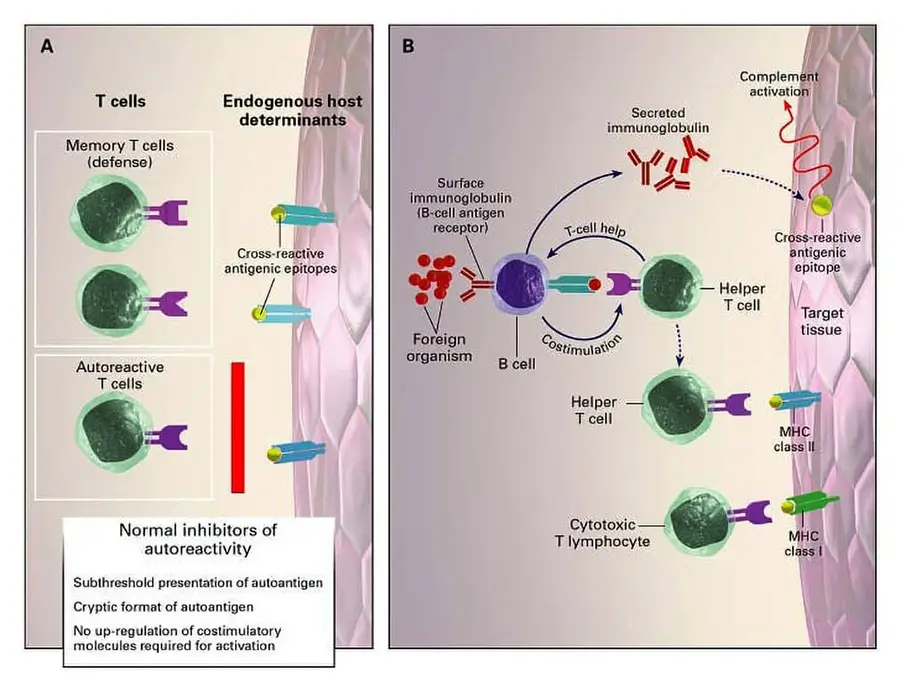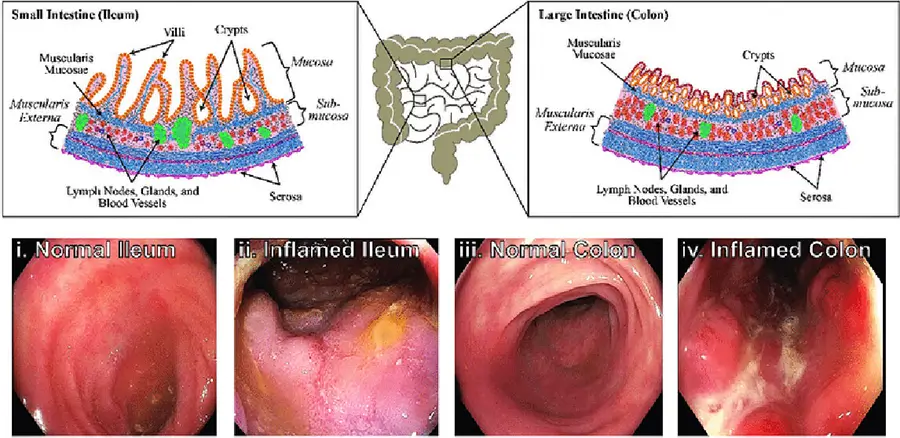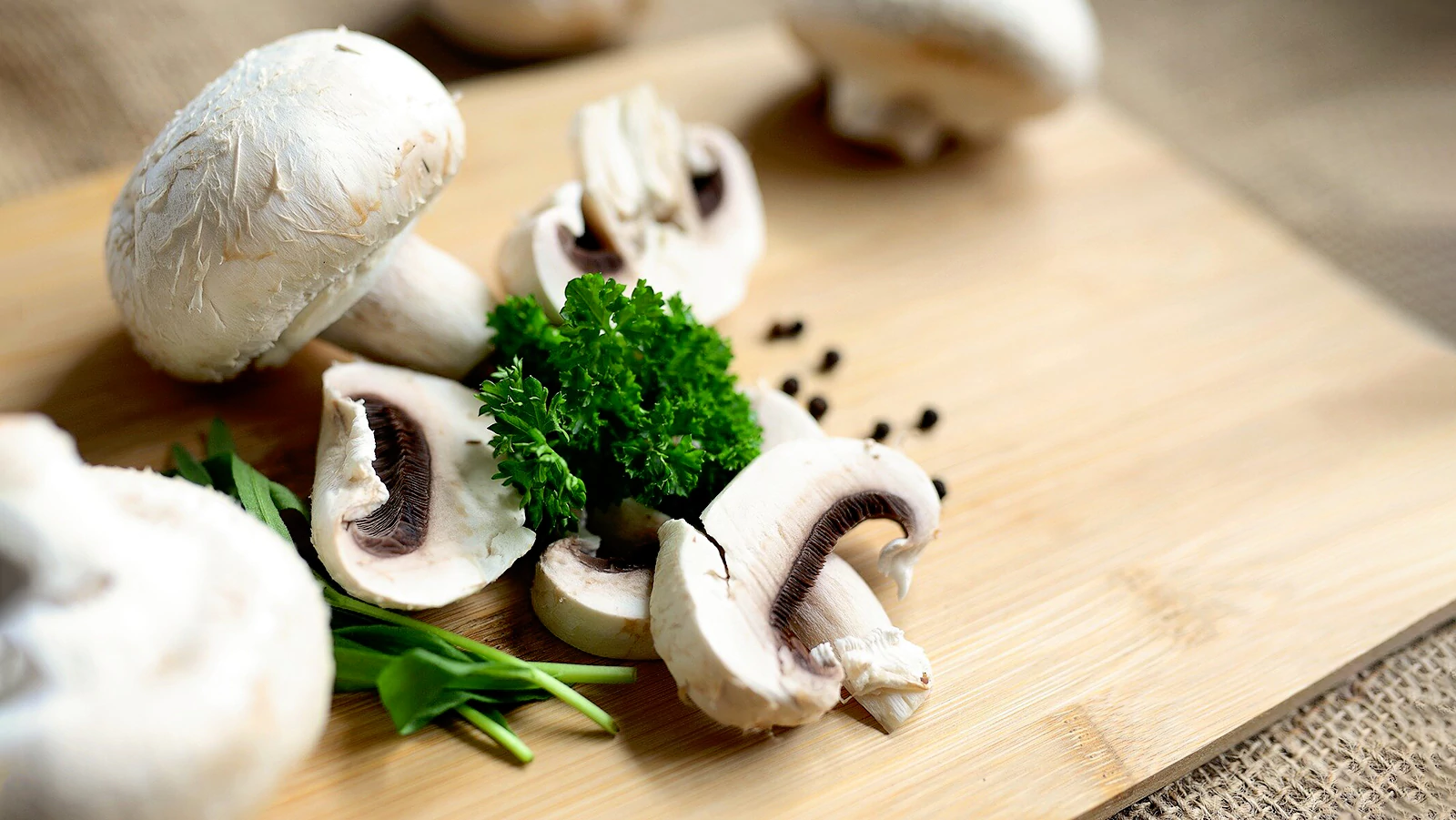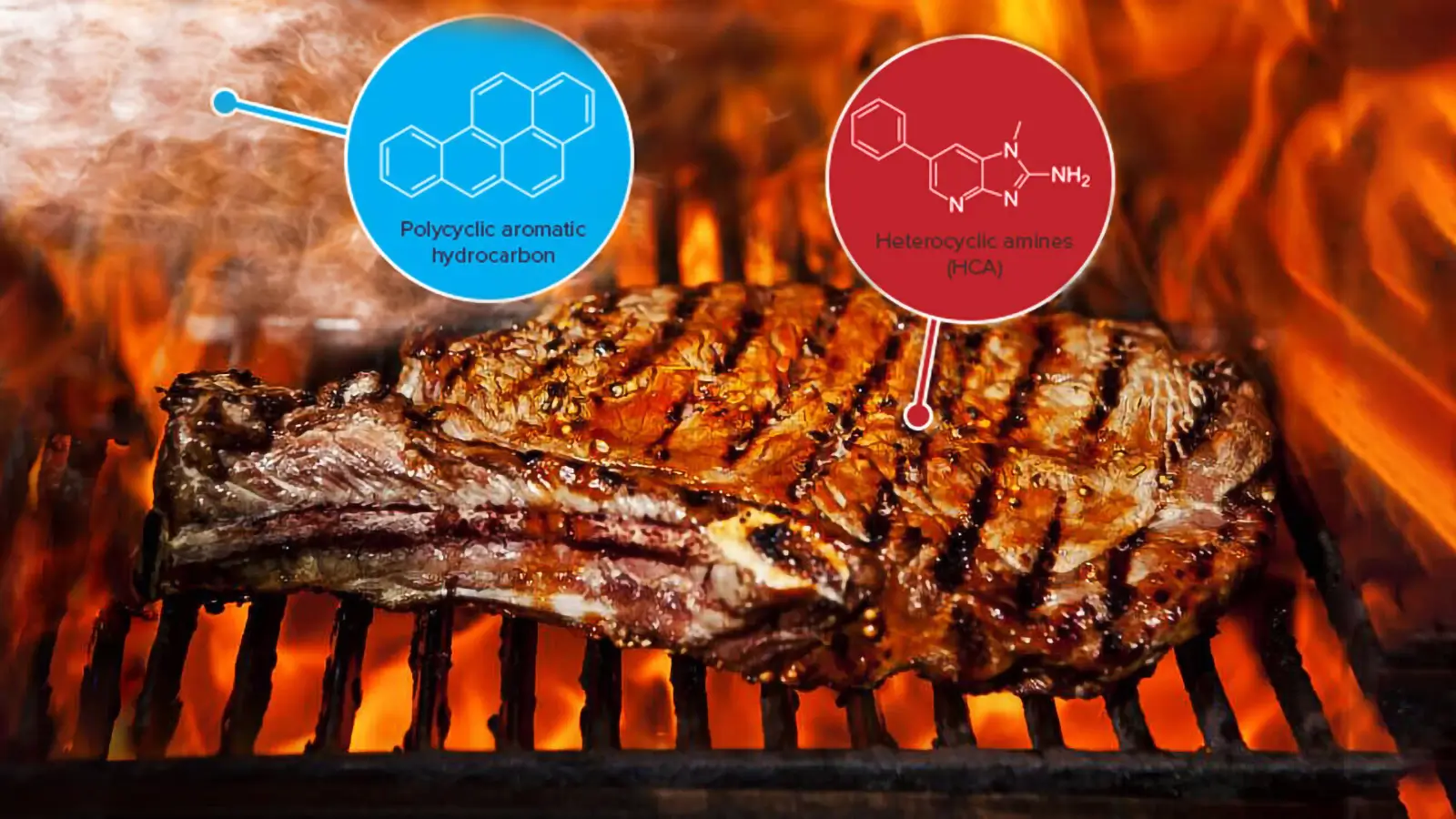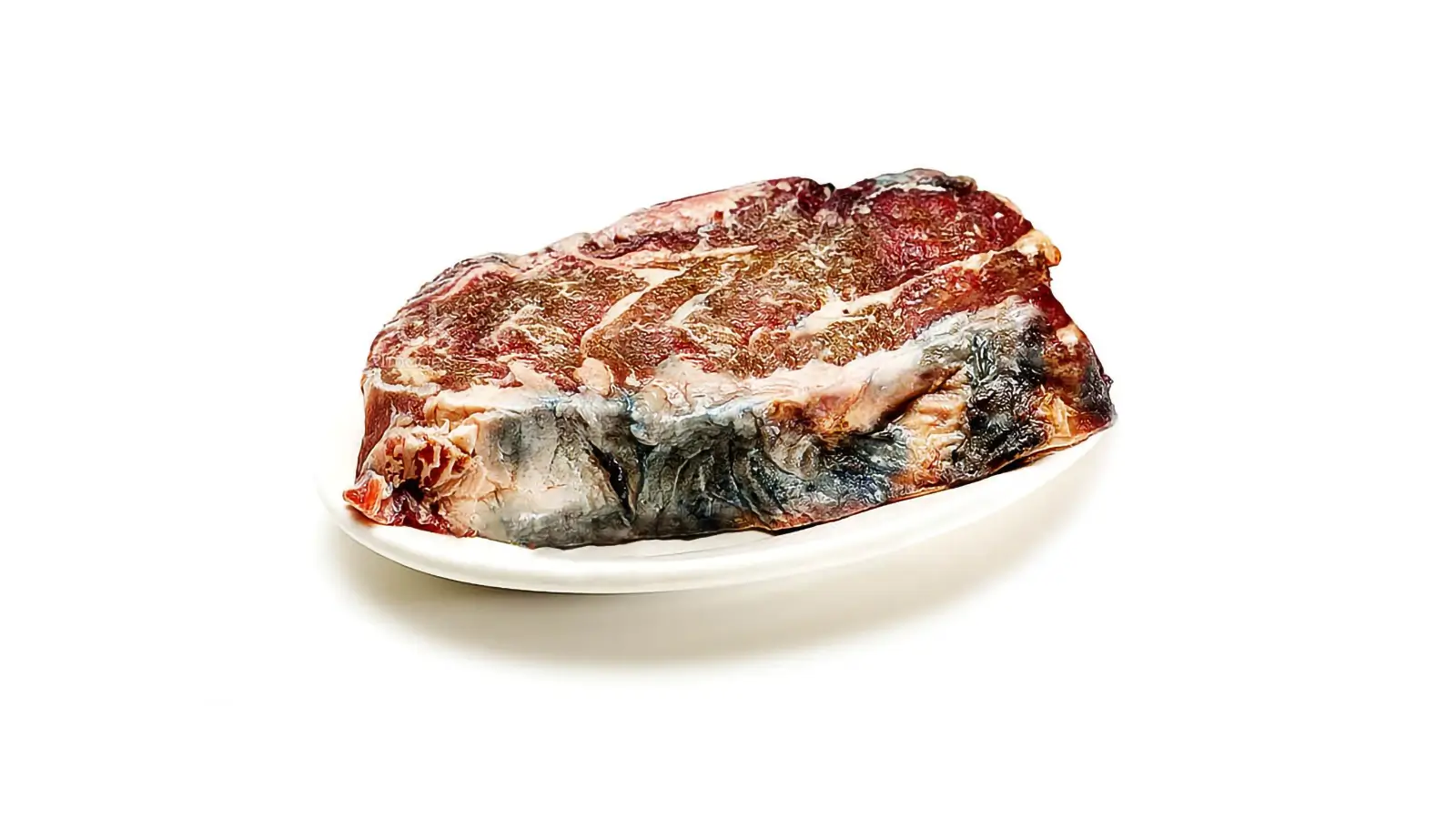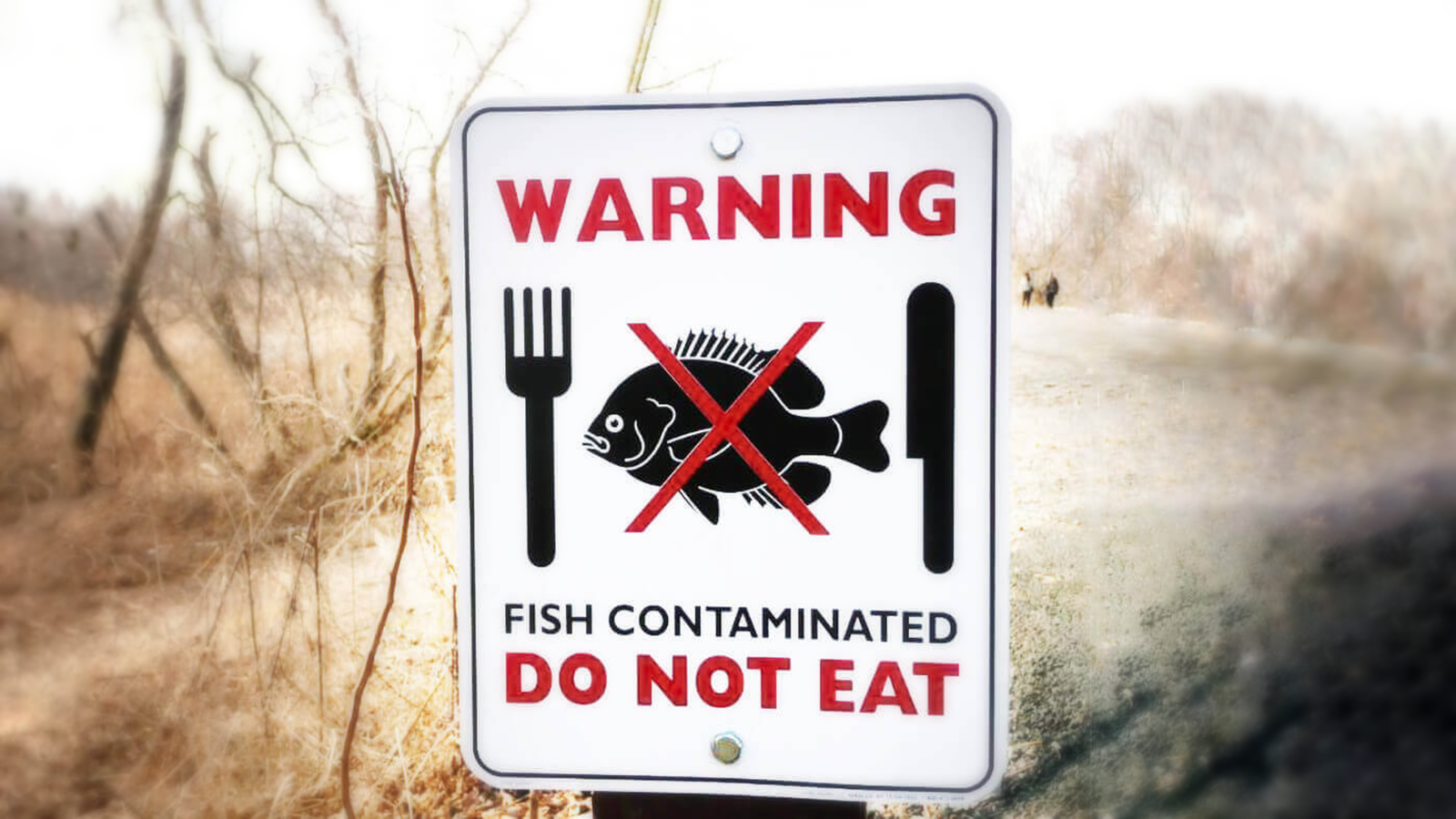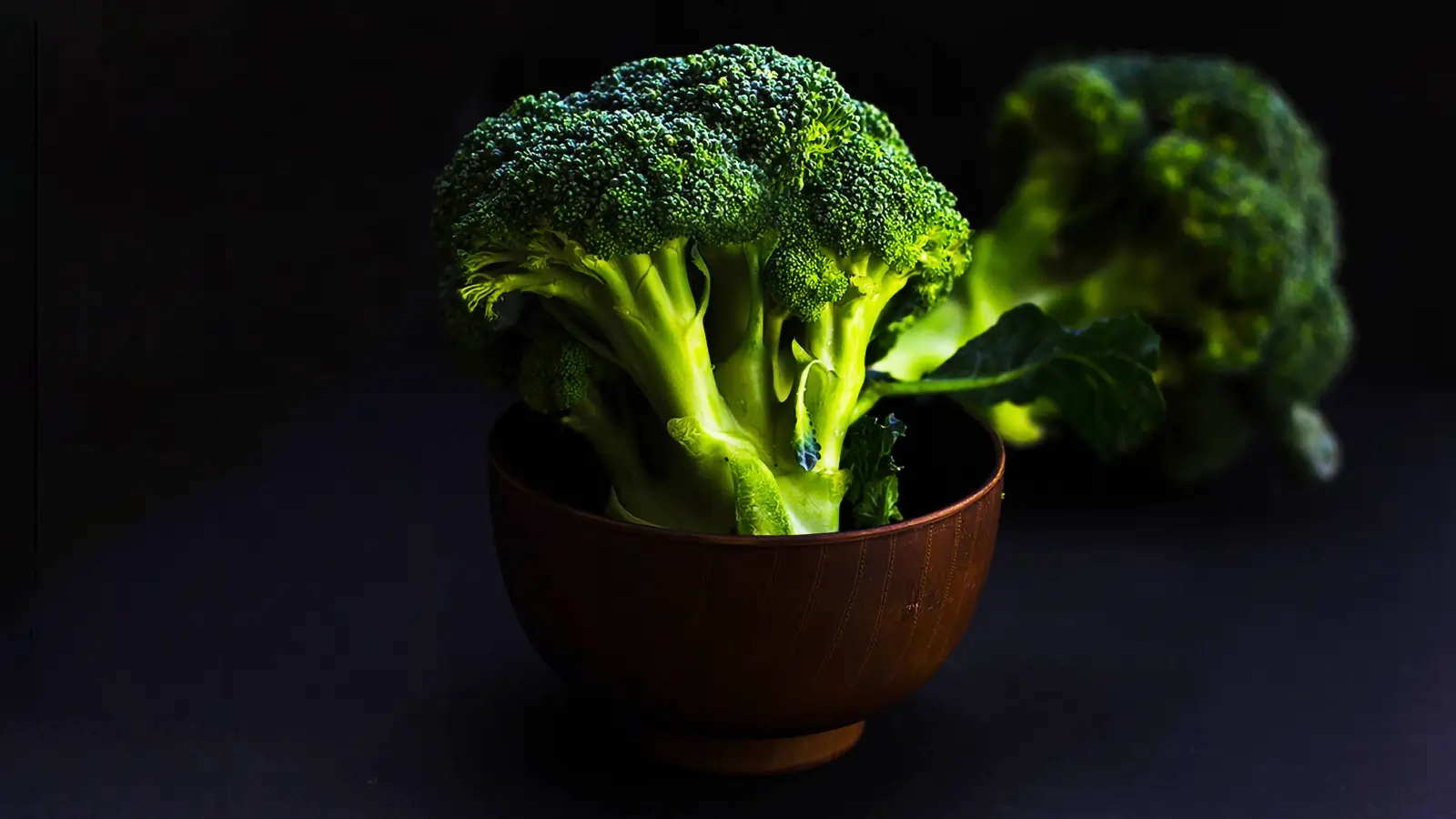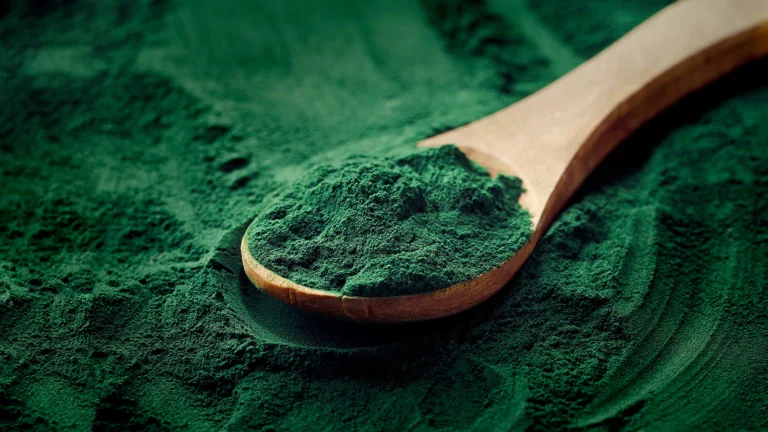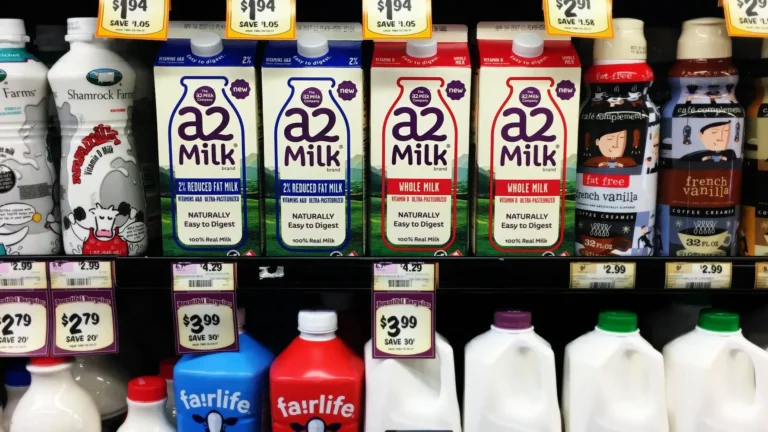Lectins- Paradox of the “Plant Paradox”
The paradox of the “Plant Paradox” is that people who eat more lectins (beans and whole grains) have less cancer.
Milos Pokimica
Written By: Milos Pokimica
Medically Reviewed by: Dr. Xiùying Wáng, M.D.
Updated May 7, 2023The paradox of the “Plant Paradox” is that people who eat more lectins (beans and whole grains) have less cancer.
There is always some “evil” and some reason why people should avoid eating the whole plant-based food diet and usually, these types of books are well received and well-promoted by mainstream media. After reading the book “Plant Paradox” someone might get the idea that eating raw plant foods might get him sick because of the antinutrients and that the best thing is to avoid this type of toxins like lectins. Go with a high protein lean meat, right, and healthy fats like fish.
The truth is that the food is usually designed to be eaten raw by nature itself. Eating raw vegetables is better than cooked but eating raw beans, for example, can kill you dead. Five raw dried red kidney beans are enough to cause vomiting diarrhea and pain. That is because the substances called lectins, chemicals that paleo diet people find to be one of the root causes of all evil.
To some extent, they can be right. Lectins are a family of proteins that bind to carbohydrates. They are sugar-binding and convert to the glyco portion of glycoconjugates in the cell membranes. The main constituents of human cell membranes include lipids, glycoproteins, lipid-linked proteins, and proteins. So they are in all of us. Lectins are proven to play a different role in cell growth, cell death, body fat regulation, and immune functions. Some of them no one should be consuming ever. However, some of them are necessary.
Since plants cannot move, they use their natural chemistry to protect themselves from microorganisms, insects, and other animals. One of the defensive chemicals is lectins. They are not to be confused with leptin, which is a satiety peptide hormone produced almost exclusively in fat tissue. Lectins play a role in different biological systems. Not just in the human body but also in animals, plants, bacteria, and even viruses. Some are toxic, inflammatory, or both and can have anti-nutrient value. They can block the absorption of some nutrients. Some are beneficial and have anti-cancerogenic activity. There is a wide variety of them.
Most of them are destroyed by cooking, but some are resistant to cooking and digestive enzymes, but again some of them are destroyed by sprouting. In nature seeds have to stay fresh and ready to sprout so naturally in the seed there are chemicals that will kill all of the putrefying bacteria. These chemicals can be deactivated by soaking, which is the beginning of sprouting. When the seed starts to sprout it neutralizes its protective preservative chemicals that can have ant nutrient and toxic effects.
Avoiding lectins is not possible or almost impossible because they are present in all of our food. They are abundant in raw legumes and grains and in some vegetables, but the more problematic lectins are found primarily in legumes. Some in wheat can also be problematic.
Wheat gliadin, which causes coeliac disease, is a lectin-like substance and it binds to the human intestinal mucosa. Gliadin has been theorized as the coeliac disease toxin for over 20 years. Because we do not digest lectins, they passed into our blood circulation, so we often produce antibodies to them. Everyone has antibodies to some dietary lectins. The appearance of different lectins can stimulate an immune system response. However, depending on the individual, the response can vary. In some individuals, some types of foods can become intolerable after the immune system change or after the permeability of the intestinal line increase so the immune system response will have to increase as well.
If we have developed antibodies to them that can be a problem not because of the lectin itself but because of something called molecular mimicry. And that can be a real nightmare. If some chemical gets to our bloodstream and our immune system makes antibodies to that chemical and if the chemical is similar to some of our own cells, meaning it has a sequence of amino acids that are the same as the sequence in some of our own cells, then the bad things are going to happen. After cleaning the evil intruder chemical, the antibody will detect our own cell as the same chemical and will attack our own living tissue eating us from the inside. When the immune system by mistake of molecular mimicry starts to attack our own cells, the horrors of never curable autoimmune disease begin.
The great news is that lectins are not similar genetically to us because they are from the plant kingdom that has different cells than our own and will not cause autoimmune reactions. However, it still can cause allergies and inflammation. Many lectins are potent allergens. For instance, prohevein is the primary allergen of rubber latex. In recent years, a new strain of genetically modified tomatoes has been created that has added genes for the production of prohevein because of its fungistatic properties. Because of this in the future, we can expect a rise in tomato allergies among latex-sensitive individuals.
Of specific interest is the fact that lectins can stimulate class II HL antigens on cells that do not usually display them, such as pancreatic islet and thyroid cells. Insulin-dependent diabetes, therefore, can be a potential lectin disease. Another possible correlation to a lectin disease is rheumatoid arthritis. In diet-responsive rheumatoid arthritis, one of the most typical trigger foods is wheat. Some of the effects observed in the small intestine in rodents were stripping away of the mucous coat and exposing naked mucosa to abnormal bacteria growth. Lectins also stimulate acid secretion by causing a release of histamine from gastric mast cells. Three central pathogenic constituents for peptic ulcer, stripping away of the mucous defense layer, abnormal bacterial proliferation (Helicobacter pylori), then release of histamine and acid stimulation are all theoretically linked to lectins.
However, if we all eat lectins, why don’t we all get peptic ulcers, rheumatoid arthritis, and insulin-dependent diabetes? Partially because cells are preserved behind a fine screen of sialic acid molecules and partially because of natural changes in the glycoconjugates that coat our cells. However, the sialic acid molecules can be stripped off by the enzyme called neuraminidase, present in several micro-organisms such as streptococci and influenza viruses. This may reveal why diabetes and rheumatoid arthritis tend to occur as a sequence of infections. The best thing to do when you are sick is to listen to your body not your mom and not eat.
What can happen that is potentially dangerous is the situation when lectins affect the gut wall, and we eat food from the animal kingdom that is genetically similar to our own cells. Lectins can cause inflammation and create damage to the lining of the intestines. If this damage is not regenerated fast enough, the gut can become leaky allowing various molecules (including stuff we do not want) to pass into the bloodstream and that is one of the main factors that are responsible for the creation of autoimmune diseases.
In normal situations for most people, lectin inflammation usually is not at the level that is dangerous and should not be the problem but if you have an allergy to some of the lectins, then it might. The brain is the brain, and muscle is a muscle, sort of speak, so if at the same time we have leaky gut and eat animal tissue, autoimmune diseases are theoretically possible, especially because of our low level of stomach acidity that cannot dissolve animal protein completely. Globular undigested proteins from animal tissue similar to our own tissue entering our bloodstream because of the lectin inflammation in the gut are a recipe for autoimmune diseases. The only thing that is normal is individual amino acids passing thru, if we have more amino acids in the chain in the blood then it is a potential invader swimming around and the immune system steps into action.
For people with leaky gut, Crohn’s disease, and any type of problem with digestion eating animal protein is in my opinion one leg in the grave. A true carnivore with stomach acidity of pH one does not have to worry about this. Also when enough lectins are consumed, it can signal our body to evacuate GI contents. This means vomiting, cramping, and diarrhea. It may further induce a comprehensive immune system response creating inflammation as the body’s defenses move in to attack the invaders.
If you eat animal protein or even if you do not, it is a good idea to do allergic testing for every type of food early in childhood because food allergies can cascade into the leaky gut, then into autoimmune diseases like diabetes type 1 or multiple sclerosis.
The worst and the most famous lectin is ricin produced in the seeds of the castor oil plant, Ricinus communis. Ricin was even used in an experimental military chemical warfare program during World War 1. There was an attempt to make coating bullets and ricin bombs, but the program did not prove to be particularly useful. It takes precisely 1.78mg of ricin to kill an average adult person. It can even be inhaled. That is about the same amount as a few grains of table salt which ricin resembles visually. It is untraceable in toxicology examinations because the poison is just a catalyst that will start a chain reaction in the body. When the first symptoms begin to show the ricin is already destroyed and cannot be detected in the body. It is at least ten times more toxic than the most potent nerve gas. A 1% water solution with an explosive burster has the same effectiveness as sarin nerve gas. That is the power of the plants. The only disadvantage ricin has is the time it needs for the victims to die. It will not have the quick tactical effect of nerve gas like sarin if you use it in combat, so it was abandoned as a military weapon. However, for single covert assassinations, it is a useful substance because the assassin can escape long before the first symptoms of poisoning have been detected. Bulgarian dissident Georgi Markov was killed in this way back in 1978 in the middle of the street in London by stabbing him from behind with an umbrella. The weaponized umbrella had ricin, and when he was stabbed in the leg with it, it was game over. He died four days later. There is no antidote currently available for ricin poisoning, only some experimental stuff that is not available to the public and not very reliable because the antidote only works while ricin is still in the blood. Usually when the first symptoms start it is already too late. If exposed death is guaranteed. Only vaccination is possible and only effective for several months by injecting an inactive form of the protein chain.
The Breaking Bad series actually inspired several real-life criminal cases involving ricin poisoning. The US government has done everything it can to hide copies of this deadly poison, but in reality, I was able to find one in a couple of minutes. Castor oil seeds contain around 5-10 percent ricin. You just have to remove the oil and fiber and filter it out. Even five to ten raw ground castor seeds will kill an adult human without making the poison. And yes castor oil is perfectly safe, according to the FDA and your grandma, ricin is not in castor oil. When we know about stuff like this, it is easy to spread hysteria about lectins like the book Plant Paradox and other bad science made to sell lectin shield products and diets. Also, lectins in the diet are not blood-type specific, so the blood type diet is just wrong. It reminds me of the gluten story. Lectin avoidance can become a new gluten scam. While many types of lectins are dangerous, there are also health-promoting lectins that can decrease the incidence of certain diseases.
Furthermore, they are necessary for some of the essential biochemical processes in which the body uses lectins to achieve many essential functions, including programmed cell death, inflammatory modulation, and cell to cell adherence. The ones that can cause problems are the ones in beans and if you have food allergies and that is it. Actually low doses of lectins are beneficial by ameliorating obesity, limiting tumor growth, and stimulating gut function. Especially for colon cancer. Ricin itself has been under several experiments as a new drug for cancer treatment. There are lectins that kill cancer cells and at the same time don’t do anything to normal cells. There are even lectins that force mutagenic cancer cells to go back into regular ones without killing them. The interest started back in 1963 after the discovery that lectins can distinguish between normal and malignant cells. Lectins are so specific that a stool sample can predict the presence of polyps and cancers on the basis of lectin binding to the colon lining cells. In a Petri dish, they have so far been able to kill a wide variety of cancers.
Because most of the lectins are in the intestines the benefits for colorectal cancer are the highest because most of them will come into contact with colon cells before they are absorbed. Big pharma currently researches different lectins, and it is expected that in the future there will be lectin-based drugs. When we look at studies, dietary consumption of beans has been correlated to a lower risk of colorectal cancer, diabetes risk, and mortality from all cases. Consumption of whole grains had been correlated with reduced risk of heart disease, strokes, diabetes, cancer, and mortality from all causes. The same story with other high lectin whole foods. If you are not allergic eating tomatoes or whole grains or beans will actually reduce the overall inflammation in the body even with all of the inflammatory lectins in them. Only legumes are poisonous when raw.
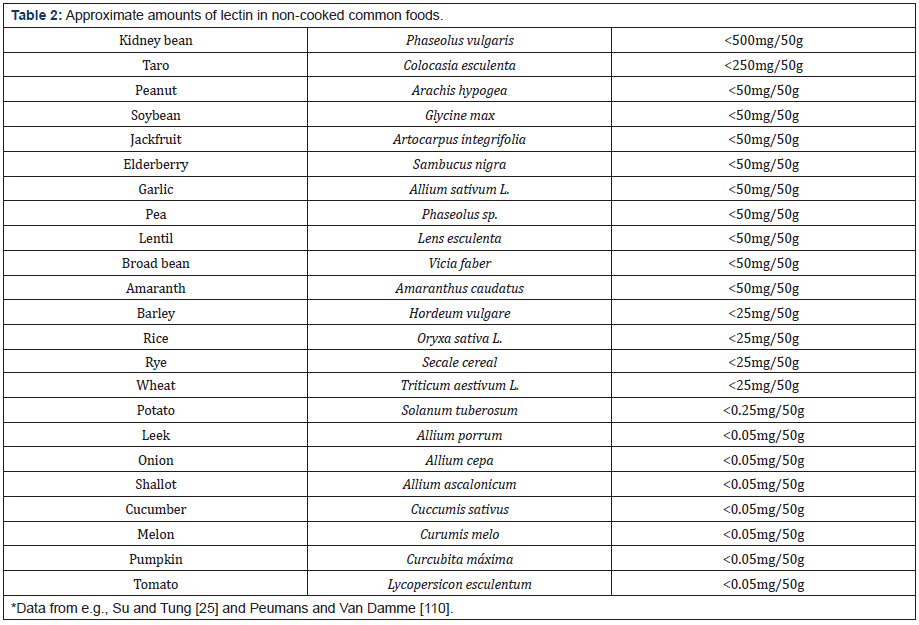
So how do we remove the lectins from the beans?
If beans are soaked for 5 hours, then 15 minutes of cooking will completely eliminate all lectins in them. If you use a pressure cooker, then the time is under 8 minutes. Before the beans are palatable, the lectins would be long gone. If beans are not soaked, then around 45 minutes of pressure cooking will eliminate them but still, they will be palatable after 60 minutes. At any rate, the beans would be free from all lectins if palatable no matter what way we cooked them. One important note, lectins are to some degree resistant to dry heat such as what would occur in baking. Cooking with legume flower that is not soaked and cooked first is not a traditional way but also not prudent or smart. The second line of defense against lectins is plain carbohydrates because lectins bind to them instantly. The minor quantities of lectins left after soaking and cooking bind with free carbs in the foods and are effectively deactivated. Only individuals eating a raw diet with certain acute or chronic infections like leaky gut or other conditions may find that lectin minimization is necessary but even in their case it might not be. Lectins are here to stay, but there are some other types of natural toxins besides lectins that we should try to minimize.
References:
Passages selected from a book: Pokimica, Milos. Go Vegan? Review of Science Part 1. Kindle ed., Amazon, 2018.
- Aune, Dagfinn et al. “Whole grain consumption and risk of cardiovascular disease, cancer, and all cause and cause specific mortality: systematic review and dose-response meta-analysis of prospective studies.” BMJ (Clinical research ed.) vol. 353 i2716. 14 Jun. 2016, doi:10.1136/bmj.i2716
- Aune, Dagfinn et al. “Whole grain consumption and risk of cardiovascular disease, cancer, and all cause and cause specific mortality: systematic review and dose-response meta-analysis of prospective studies.” BMJ (Clinical research ed.) vol. 353 i2716. 14 Jun. 2016, doi:10.1136/bmj.i2716
- Van Buul, Vincent J., and Fred Brouns. “Health Effects of Wheat Lectins: A Review.” Journal of Cereal Science, vol. 59, no. 2, Elsevier BV, Mar. 2014, pp. 112–17. https://doi.org/10.1016/j.jcs.2014.01.010.
- Chan, Yau Sang et al. “White kidney bean lectin exerts anti-proliferative and apoptotic effects on cancer cells.” International journal of biological macromolecules vol. 85 (2016): 335-45. doi:10.1016/j.ijbiomac.2015.12.094
- De Mejía, Elvira González, and Valentin I Prisecaru. “Lectins as bioactive plant proteins: a potential in cancer treatment.” Critical reviews in food science and nutrition vol. 45,6 (2005): 425-45. doi:10.1080/10408390591034445
- Hamid, Rabia, and Akbar Masood. “Dietary Lectins as Disease Causing Toxicants.” Pakistan Journal of Nutrition, vol. 8, no. 3, Asian Network for Scientific Information, Mar. 2009, pp. 293–303. https://doi.org/10.3923/pjn.2009.293.303.
Related Posts
Do you have any questions about nutrition and health?
I would love to hear from you and answer them in my next post. I appreciate your input and opinion and I look forward to hearing from you soon. I also invite you to follow us on Facebook, Instagram, and Pinterest for more diet, nutrition, and health content. You can leave a comment there and connect with other health enthusiasts, share your tips and experiences, and get support and encouragement from our team and community.
I hope that this post was informative and enjoyable for you and that you are prepared to apply the insights you learned. If you found this post helpful, please share it with your friends and family who might also benefit from it. You never know who might need some guidance and support on their health journey.
– You Might Also Like –

Learn About Nutrition
Milos Pokimica is a doctor of natural medicine, clinical nutritionist, medical health and nutrition writer, and nutritional science advisor. Author of the book series Go Vegan? Review of Science, he also operates the natural health website GoVeganWay.com
Medical Disclaimer
GoVeganWay.com brings you reviews of the latest nutrition and health-related research. The information provided represents the personal opinion of the author and is not intended nor implied to be a substitute for professional medical advice, diagnosis, or treatment. The information provided is for informational purposes only and is not intended to serve as a substitute for the consultation, diagnosis, and/or medical treatment of a qualified physician or healthcare provider.NEVER DISREGARD PROFESSIONAL MEDICAL ADVICE OR DELAY SEEKING MEDICAL TREATMENT BECAUSE OF SOMETHING YOU HAVE READ ON OR ACCESSED THROUGH GoVeganWay.com
NEVER APPLY ANY LIFESTYLE CHANGES OR ANY CHANGES AT ALL AS A CONSEQUENCE OF SOMETHING YOU HAVE READ IN GoVeganWay.com BEFORE CONSULTING LICENCED MEDICAL PRACTITIONER.
In the event of a medical emergency, call a doctor or 911 immediately. GoVeganWay.com does not recommend or endorse any specific groups, organizations, tests, physicians, products, procedures, opinions, or other information that may be mentioned inside.
Editor Picks –
Milos Pokimica is a health and nutrition writer and nutritional science advisor. Author of the book series Go Vegan? Review of Science, he also operates the natural health website GoVeganWay.com
Latest Articles –
Top Health News — ScienceDaily
PubMed, #vegan-diet –
- Veganism: an extended theory of planned behavior framework incorporating ethical, environmental, and sociodemographic determinantson February 20, 2026
CONCLUSION: This study broadens the TPB by integrating ethical, normative, and psychosocial dimensions that explain vegan intentions beyond traditional predictors. Findings underscore the importance of moral identity, perceived social expectations, and contextual factors in shaping sustainable dietary behaviors.
- Association Between Diet and Metabolome in Childhood and Adolescence: A Systematic Reviewon February 11, 2026
CONCLUSION: This review identifies several metabolites consistently associated with specific dietary components across different studies in children and adolescents. These findings support the potential of metabolomics for validating dietary biomarkers and improving the accuracy of dietary assessment in pediatric populations. Although metabolomic markers reflect actual dietary intake, their implications for health outcomes remain to be explored.
- Growth Trajectories in Infants From Families With Plant-Based or Omnivorous Dietary Patternson February 5, 2026
CONCLUSIONS AND RELEVANCE: In this cohort study, infants from vegan households had growth patterns similar to those from omnivorous households, with a higher odds of early underweight that decreased by age 24 months. In the context of developed countries, these findings seem reassuring. Further research should examine vegan diet quality and the impact of nutritional counseling during pregnancy and infancy in supporting optimal infant development.
- Influences of vegan status on protein intake, lean body mass, and strength in lightly active, young women: A cross-sectional studyon February 5, 2026
CONCLUSION: These data suggest that functional indicators of body protein status may be adversely impacted by long-term adherence to vegan diets in young adult women.
- Iodineon January 1, 2006
Iodine is an essential trace nutrient for all infants that is a normal component of breastmilk. Infant requirements are estimated to be 15 mcg/kg daily in full-term infants and 30 mcg/kg daily in preterm infants.[1] Breastmilk iodine concentration correlates well with maternal urinary iodine concentration and may be a useful index of iodine sufficiency in infants under 2 years of age, but there is no clear agreement on a value that indicates iodine sufficiency, and may not correlate with […]
Random Posts –
Featured Posts –
Latest from PubMed, #plant-based diet –
- Differences in Protein Quantity and Quality Across a Spectrum of Plant-Based Meals: Analysis of a Large National Dietary Surveyby Sophie L van Oppenraaij on February 24, 2026
CONCLUSIONS: This study shows that only a small proportion of Dutch adults met both protein-related recommendations and sustainability goals, due to lower protein quantity and quality in more plant-based diets. This study emphasizes the need for professional guidance, especially in individuals with higher protein requirements, to facilitate a successful transition to a more plant-based diet.
- Evaluation of biochemical, histopathological, hematological, and genotoxic effects of some indigenous weed plant extracts in albino rats toward a natural and safe alternative to synthetic insecticidesby Muhammad Asif Zahoor on February 23, 2026
CONCLUSION: These findings suggest that these weed plants have the potential to be used as biopesticides for future integrated pest management (IPM) programs.
- Comparative life cycle assessment of conventional dairy products and plant-based analog and hybrid alternatives: current status and future perspectivesby Muhammed Fidan on February 23, 2026
Conventional dairy products are associated with relatively high environmental burdens, largely driven by farm-level processes such as enteric methane emissions, feed production, and land use. These concerns have intensified interest in plant-based analog and hybrid dairy products as potential alternatives. However, environmental comparisons among these product categories remain inconsistent due to differences in functional units, methodological choices, and nutritional characteristics. This…
- Dietary Patterns and Indicators of Cognitive Functionby Hui Chen on February 23, 2026
CONCLUSIONS AND RELEVANCE: Results reveal that healthy diets, exemplified by the DASH diet for blood pressure control and diets with lower hyperinsulinemia and inflammation potentials, were associated with a lower SCD risk and better cognitive function. These findings underscore the importance of a healthy diet for maintaining long-term cognitive health.
- Adherence to the EAT-Lancet Planetary Health Diet during Pregnancy and Associations with Preterm Birth and Infant Size: a prospective analysis from the New Hampshire Birth Cohortby Leyre Notario Barandiaran on February 21, 2026
CONCLUSION: Originally proposed for chronic disease prevention and planetary sustainability, higher adherence to the PHD during pregnancy may also benefit birth outcomes, particularly lower odds of preterm birth.
- Comparative effects of Gamal (Gliricidia sepium)-based diets supplemented with Gambier (Uncaria gambir) or direct-fed microbials on rumen fermentation, nutrient digestibility, microbial protein…by Bella Veliana Utami on February 20, 2026
CONCLUSION: Gamal-based diets supplemented with Gambier or DFM positively modified rumen fermentation, but through distinct mechanisms. DFM improved digestibility and fermentation stability, whereas Gambier achieved the greatest CH(4) mitigation at 1% inclusion. Gambier represents a promising, locally available option for sustainable methane reduction in tropical ruminant feeding systems, supporting future in vivo validation.
